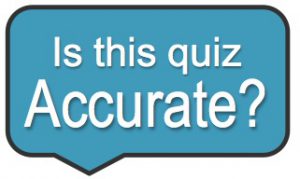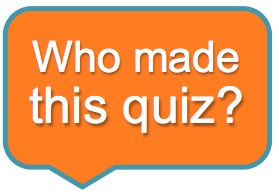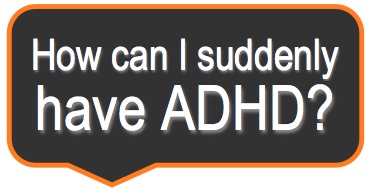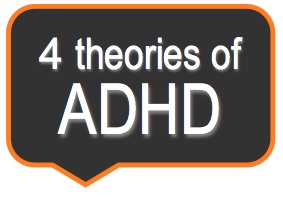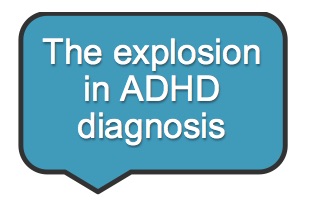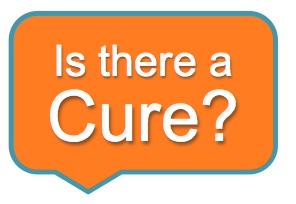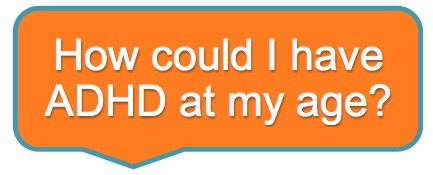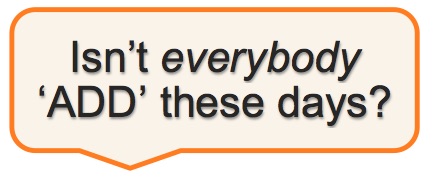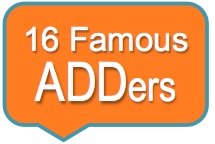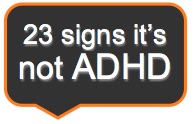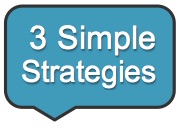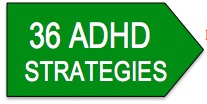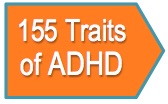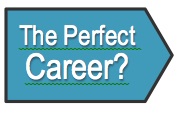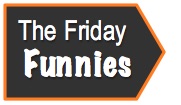ADHD Combined Type
Your score suggests INATTENTION is a problem for you
While most people struggle with some of these symptoms, that doesn’t mean they have ADHD. They could be stressed by major life events or any number of medical issues. But your score suggests a full assessment by a specialist who understands ADHD might be in order.
About 4 to 5% of adults have ADHD. They struggle with focus, distraction, and attention. These challenges are ongoing, undermining their best intentions in many areas of life.
Re-take our Do I Have ADD Quiz Here
The Combined Subtype of ADHD
Your answers suggest you may have The Combined Subtype of ADHD.
Those of us with this type of ADHD struggle with Attention and Distractibility. We may be forgetful, sensitive, distracted, or overwhelmed by hectic situations.
As well, like a majority of people who have ADHD, we also struggle with Hyperactivity and Impulsivity. We may feel restless, talkative, impatient, and have strong emotions. But also driven, curious, creative, with lots on the go.
Together, problems with Attention, Restlessness, and Impulsivity make up the Combined Subtype of ADHD.
(Some people struggle with Attention but not Hyperactivity or Impulsivity. They may be quieter, daydreamers, often lost in thought That’s known as the Predominantly Inattentive Subtype.)
ADHD or ADD is a spectrum disorder. So there’s a range of symptoms and severity. Some symptoms may be a constant challenge for you, others rarely.
What Is ADHD?
ADHD is an ‘Executive Function Disorder.’
What does that mean?
Well, think about the Executives and Managers in a large corporation. What are their functions? (Other than getting a juicy pay-check.)
They handle:
- Long Term Planning and Setting Goals
- Managing Paperwork and Finances
- Creating Schedules and Meeting Deadlines
- Checking Details and Tracking Progress
- Ensuring Consistent, Steady, Uniform Output
- Following the Rules and Standard Procedures
These are not necessarily our strengths. (Understatement!)
The Good News About ADHD
Knowing what’s going on changes everything.
Now you can see why you struggle with tasks most folks find easy, yet excel at things that others avoid.
Because it explains so much some doctors call ADHD a ‘Good News Diagnosis.’
About 1 in 25 adults have this mindset. Which means these traits are sabotaging their best efforts in multiple areas of life. Everyone loses things, but when it’s constant, when it’s costing you time, energy, and perhaps even your job, it’s a disorder.
Luckily ADHD is very treatable. You’ll find tons of tools and tricks that work for this unique mindset.
Armed with knowledge and ADHD-Friendly strategies, you can soar in the right situations. It starts by understanding what ADHD really is.
This Quiz is based on the American Psychiatric Association’s Diagnostic & Statistical Manual V and the World Health Organization’s Adult Self-Reporting Scale.
How Accurate Are Online ADHD Tests?
This is a ‘preliminary screener.’ There are more in the Tools section of TotallyADD.
If you have ADHD and answer honestly, this quiz should catch it.
However, you may also have these ‘symptoms’ if you are struggling with Depression, a crisis in your life, a thyroid problem, or stressful events. What’s the difference?
ADHD is ongoing and shows up in multiple areas of life.
So, “I’m overwhelmed at my job,” or, “I’ve been in a fog since my divorce,” may just be a temporary situation.
ADHD is not temporary. It’s highly genetic. As of now a dozen genes have been identified and many more ‘suspect genes’ are being studied.
ADHD runs in families. It’s almost as heritable as height!
In fact, many adults first consider that they might have ADHD after their child has been diagnosed.
A full and proper diagnosis requires a doctor who understand Attention Deficit Hyperactivity Disorder or Attention Deficit Disorder.
NOTE: You probably won’t have all the core symptoms. Every person is different.


I did. With some help from a number of ADHD specialists. Hi, I’m Rick Green, creator of the award-winning programs ADD & Loving It?!, and ADD & Mastering It! and the TotallyADD.com website. Over the years we have interviewed 75 experts from across North America to create an independent, reliable source of information for anyone who has, or lives with ADHD.
No quiz can replace a proper diagnosis by a trained mental health professional. But it should be a good indicator of whether you should look into it further.
If you haven’t seen ADD & Loving It?! here’s a sample.
Knowing makes all the difference. Simply understanding what’s going on is a huge relief, whether you choose to do anything about it or not.
After a decade of educating and advocating for people with ADHD I have never heard an adult say, “I wish I’d never found out.” The universal lament is, “If only I’d known sooner.”
Because once you know, everything changes.
Is it Possible for ADHD to Develop in Adulthood?
Great question. How can we live for decades with this mindset and not know?
Because ADHD is highly heritable, you may have been this way since childhood. It’s all you’ve known, so you assumed life is this difficult for everyone. It isn’t!
For much of your life you may have been coping but as your situation changes you may become overwhelmed.
As well, the symptoms of ADHD are not exotic. Everyone struggles with distractions, poor memory, focus, restlessness, and impulsivity…. now and then. However, when the symptoms are constant and impairing you, it’s considered a disorder.
What distinguishes the ADHD brain?
ONE PERSPECTIVE sees the brain as being ‘half-asleep.’ We require more stimulation because we’re short of ‘fuel.’ That fuel seems to be Dopamine and Norepinephrine, two chemicals that transmit messages around the brain.
ADHD medications which increase the amount of Dopamine in available in the brain can produce dramatic results. Many people, even non-ADHD folks, already use two popular stimulants: Nicotine and Caffeine.
A SECOND PERSPECTIVE sees this as a brain that is ‘reward deficient.’ We may require more stimulation to get engaged and motivated. Many adults rely on adrenaline to compensate for low levels of Dopamine, engaging in high-risk activities, leaving things to the last possible moment, and always on to the next thing.
A THIRD PERSPECTIVE is to see folks with ADHD as ‘Interest Driven.’
When something interests us we can be unstoppable, powerfully productive, in a state of ‘flow’ known as Hyper-focus.
Our ‘novelty seeking’ means we may be enthused by something new, but we rarely finish what we start, or we rush and make small mistakes.
THE FOURTH PERSPECTIVE is to see it as an Executive Function Disorder. Executives are people who manage time and energy, organize projects, prioritize, stay on task, and see things to completion.
And these are usually NOT our strengths.
Often, quite the opposite.

The ADHD Explosion
“Why the sudden explosion in ADHD? Where were all these people before? Is it contagious? Toxins? Too much Internet?”
Good questions!
There are a number of possible explanations for the increase in ADHD diagnosis, and in some places, the over-diagnosis. This video lays out 7 possible causes.
Is There a Cure for ADHD?
Short answer: “No.”
Sorry. Most of us are born this way. Though a head injury can produce many of the same symptoms.
About a dozen genes have been positively linked with ADHD, and researchers have identified many more ‘suspect genes’, ones that show up far more often in people with this disorder.
But not everyone has the same genes, so ADHD looks different in everyone.
“Am I doomed? Will I always be this way?”
No! 1/3 of kids who are diagnosed with Attention Deficit Hyperactivity Disorder outgrow the symptoms. Which means 2/3 of us are still struggling in adulthood with restlessness, impulsivity, impatience, poor memory, etc..
While there may not be a ‘cure’, a ‘Holistic’ approach using a range of strategies can be life-changing. You can manage the downside, and ideally develop the traits that work for your situation.
How Can I Suddenly Have ADHD?
You probably always had this mindset and you’ve struggled.
Once I had a proper diagnosis from a doctor I could see that I had lived my entire life in a wrestling match against an invisible opponent.
Not only did I have no idea what was sabotaging me, I had no idea that I was in this wrestling match. Sometimes I was winning, sometimes losing, but always feeling that I struggled more than most people.
That’s why it’s so painful and disheartening when teachers, parents, and others tell us to “Try harder.”
We are trying as hard as we can with the wiring and chemistry we’ve inherited.
With a proper diagnosis I now understand why, for example, paperwork and finances fill with dread, while getting up and performing in public is exciting, fun, and easy.
Causes & Cures
Does Everyone Have ADHD?
Actually, yes! Somewhat.
Everybody forgets things, gets distracted and feels scattered or overwhelmed… now and then.
However, when the symptoms are FREQUENT and they’re IMPAIRING you in several areas of life, (despite your best intentions) then it’s considered to be a disorder. One that can be managed.
“I don’t like the idea that I have a ‘Disorder.”
Me either. Who would?
So, call it a Syndrome. Or ‘My Challenges,’ or a ‘collection of traits,’ or ‘things I don’t do well,’… whatever works for you.
What matters is get it managed so it’s not constantly undermining you. Millions of people have reduced the severity of the symptoms, and achieve far more with far less frustration using ADHD-Friendly solutions.
Success, Signs, & Strategies
Famous People With ADHD
If you do qualify has having ADHD, you are in good company. People with this mindset are leaders in their field as entrepreneurs, entertainers, and athletes:
People with ADHD can thrive in the military, emergency services, sales, athletics, entertainment, journalism, and other high-stimulation situations. For example:
Millions of people with have found rewarding careers in the trades, health care, esthetics, and more.
Success depends on what interests you, doing what you do well, and finding ways to minimize the crap that is a struggle for you.
Simple ADHD Strategies
Here are three ADHD-Friendly strategies we love.
1: CHUNK IT UP: Overwhelmed by a complex task?
Break it down into doable pieces. Manageable chunks.
“The kitchen is a total mess, it will take days to clean!”
Okay, can you do 20 minutes? No? How about 5? Great. Just empty the sink, toss the recyclables, or get that big pan soaking.
Commit whatever you are sure you can do and start. Sounds ridiculous, right? Especially if it’s huge task.
Experience shows at after 5 minutes I almost always feel motivated to keep going for another 5, 10 or 20. It’s amazing.
If, after 5 minutes I do stop, I am left with a sense of progress. I know, it may sound trivial, but that small accomplishment makes it easier to start again later.
Chunking things up has allowed me to renovate an entire basement, co-create 700 episodes of radio and television, and, yes, even tidy the kitchen after a big party.
- SHORT TO DO LISTS
I know from years of experience that a ‘To-Do’ list with a dozen small tasks on it (or several dozen) is a mistake.
In the past I’d start the day by listing all the things I wanted to get done, adding in lots of little quick jobs. It soon became clear my list would take several days. Rather than cut back, I’d add a few more items, “Might as well plan out the whole week.”
I have started a list of ‘Today’s Jobs’ and ended up planning out the whole month! By time I was done, I was bushed. And it was lunchtime! The joke is I’d never refer back to the list. Instead, the next morning, I’d start a new one.
The solution: pick one thing and don’t do anything else until it’s done. (Or use Tip Number 1 and chunk it up, doing as many chunks as you can in one day.) Do one thing that matters. And yes, if you get it done, by all means jump into something else.
It’s great to keep a list of what needs doing, who I need to call, and so on, but trying to fill my day with 1,000 quick victories rarely works. I feel good, finishing a lot of quick, easy tasks, but I avoid the one that really matters.
- EXTERNALIZE:
We can be forgetful. As one doctor who has ADHD said, “I experience life intermittently.” We’re tuned out. Lost in thought. Half listening, mind racing off on a tangent.
Forgot the book you promised to bring for a friend? Next time lean it against the front door.
Forgot your lunch in the fridge? Tomorrow put your keys on top of your lunch in the fridge. That way you can’t leave without them.
Ate breakfast, showered, got dressed, and then remembered you were going to do yoga? Lean the yoga mat on the fridge so you can’t miss it. Or put a huge post-it on the fridge, and one on the coffee maker, and heck, one on the cereal box.
A child who kept forgetting to take his ADHD medication would climb into bed, throw a pillow against his bedroom door, so that every morning the sight of the pillow would remind him to take his medication.
Sounds silly right? Maybe. But it works.
And I am all about doing whatever works for me.
WANT MORE SOLUTIONS?
The ADHD mindset means we can have unusual strengths, but mess up on simple things. Our documentary ADD & Mastering It! lays out 36 strategies that work for the ADHD mindset.
Find your story in the TotallyADD Blog.
Check out our Free Videos.
Get powerful tools in the TotallyADD Shop

